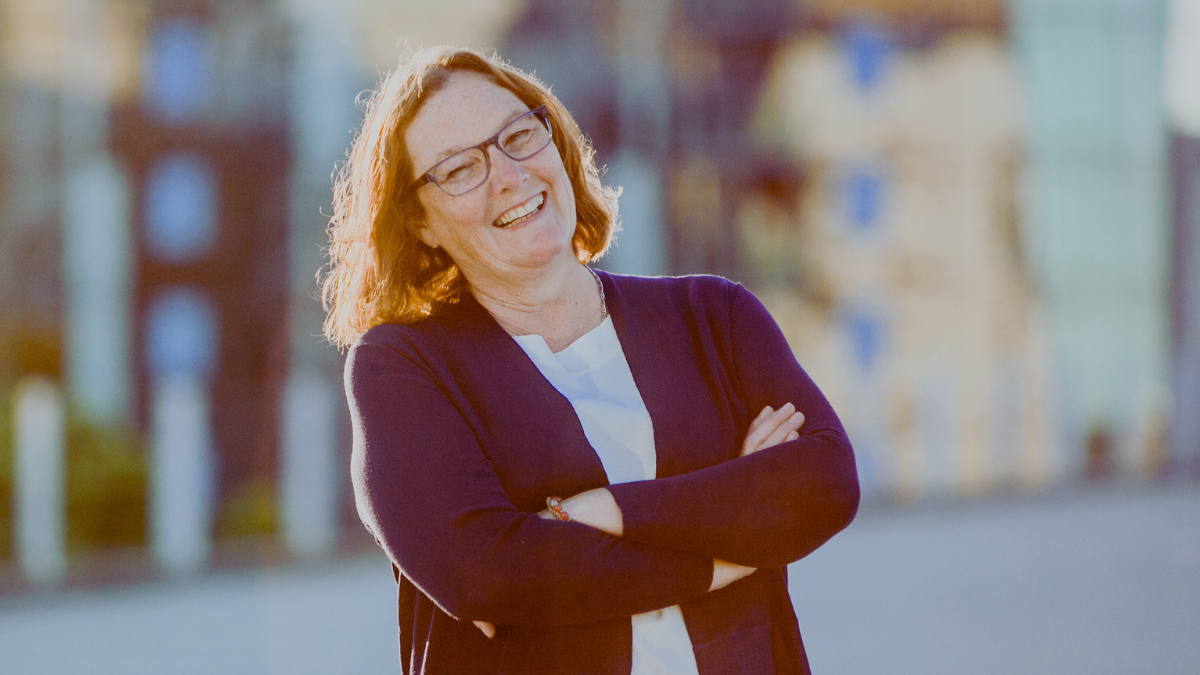We hear a lot about Mindfulness and the Mindfulness community, but most people find Mindfulness difficult to learn and implement. Then I interviewed Janet Fouts who has a unique take on how to utilize Mindfulness one tiny step at a time, she calls these tiny steps “microdose.”
 Janet Fouts
Janet Fouts
Janet worked in technology for over 20 years before a life experience helped her to see the importance of self-care and how mindfulness helps people reach their true potential. She studied Mindfulness and emotional intelligence to become a facilitator and executive coach. She then closed her digital marketing agency to launch Nearly Mindful, offering training in mindfulness-based emotional intelligence.
We hear a lot about Mindfulness, what does that mean to you?
Quite simply, Mindfulness is paying focused attention without judging or analyzing. One is simply present with whatever is in that moment.
How did you get into the Mindfulness space?
When my partner was diagnosed with Cancer I became a caregiver and put all my energy into it. I burned myself out and that brought on anxiety, exhaustion, and depression. I knew I had to take care of myself and after much experimentation, I discovered how mindfulness helped me to be more resilient and better able to handle the stress, so I started learning as much as I could.
Tell us, how did you use Mindfulness in regards to the Quarantine or the Pandemic?
The pandemic forced me to go from face-to-face work to online, and that was a blow for my business and my heart. I missed being with clients and it took some introspection to bring compassion forward for myself as well as clients. As it turned out we got to dig deeper in private sessions online and mini-retreats. Quarantine allowed me to focus on developing new tools and start writing the next book!
Microdose Mindfulness, please explain what this means?
I coined the phrase Microdosed Mindfulness. In short much of what we teach about mindfulness comes in small doses, often called micro-practices. These are small things you can do to re-focus, manage stress, and be a better communicator. You see, people think mindfulness takes “too much time” or it’s hard. The reality is that taken in tiny, easily managed moments we can begin to gain the many benefits of mindfulness in our lives. Dose by dose we see the changes happening.
How would you Microdose mindfulness?
Here’s a microdose of mindfulness. You’re working at your desk and the phone rings, interrupting you. At the sound of the ring, you can stop and choose whether or not to answer it or let it go to voicemail.
That’s a conscious, mindful choice. If you decide to answer, take a short breath and allow yourself to be fully present (not distracted). Now your conversation will likely be shorter and more effective because you are fully present for the conversation insted of flustered and distracted.
How did using Mindfulness help you in life?
Mindfulness has allowed me to manage my hectic life with more resilience. We all know that things are going to happen, but now they don’t seem so overwhelming. I can get focused, be present, and manage through without letting emotions drive my reactions.
You have a new book coming out please tell us about it?
The new book is called Microdosed Mindfulness –Tiny actions that add up to a happier life, better communication, focus, and peace.
The book is written with each microdose of mindfulness on its own page. You can pick the book up and learn one element of mindfulness in a moment, and apply it directly to your everyday life.
Topics in the book range from preparing for challenges in your life, effective communication skills, reducing anxiety and stress, learning to meditate or choosing to simple be more aware of yourself and others.
All of the microdoses in the book are actual practices and habits I use myself and teach in my retreats.
Rejection is part of life and business, how do you deal with rejection?
Rejection certainly is part of life, it’s how we take that rejection that sets us apart. If we become reactive instead of responsive to the rejection, things can get messy. If we can step back and get some perspective we often see that it probably isn’t personal but something that is happening in the other person’s life or work. Often we can turn that knowledge to compassion and empathy and respond in a way that is kinder to all involved.
What were the biggest lessons you’re taking away from 2020?
That there are so many things out of our control. Struggling against what we can’t control is the source of so much pain, but if we recognize that we can’t
change it then it’s easier to roll with it and get through it.
That’s also where compassion comes forward. When we see others in distress we can offer compassion and help them manage better. That doesn’t mean we have to fix everything, it means that we let them know we are willing to help, even if that is just listening. This isolation has left people feeling invisible. Let them know that you see them.
Anything Else To Add?
Throughout my journey from depression, fear, and anxiety to becoming a mindfulness teacher over the last 10 years, I have been blessed to learn from and get to know so many amazing people.
The strength and generosity of the mindfulness community is amazing and something to be treasured. Try it and see.

